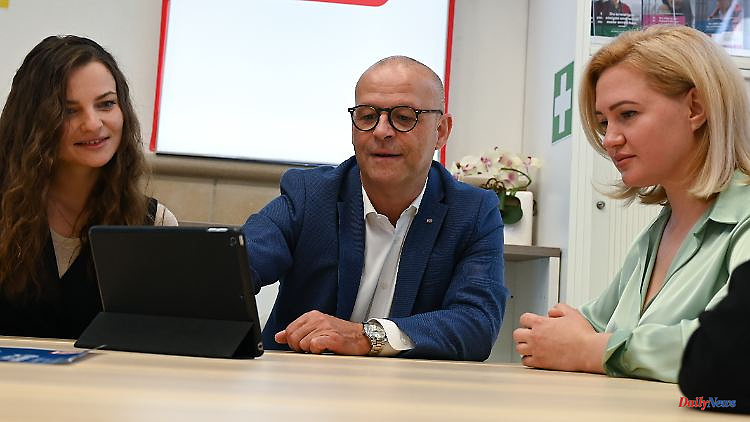After Russia's invasion of Ukraine, Germany also took in hundreds of thousands of refugees from the country, initially for humanitarian reasons. After almost a year of war, it is becoming clear that thousands of them are making important contributions to the labor market. In order for there to be more, one problem must be solved.
Around a year after the start of the war against Ukraine, the Federal Employment Agency is assuming that refugees from the country will ease the burden on the German labor market. Around 65,000 Ukrainians are already employed in jobs subject to social security contributions than before the fighting began, said Daniel Terzenbach, a board member of the federal agency. In addition, there are 21,000 Ukrainians in mini-jobs. They all contribute to combating the shortage of personnel in the German economy.
"The German job market is receptive," said Terzenbach. He expects that the number of employees from Ukraine will increase significantly in the coming weeks and months - when the women and men have completed the integration and professional language courses of the Federal Office for Migration and Refugees. From the second quarter, a larger number of graduates with good language skills will be available. "We deliberately tried to make people's qualifications visible and usable," said Terzenbach. The intention was not to place the refugees in helper jobs immediately, but to use them according to their possibilities.
With the wave of refugees from 2014 to 2016, the goal was to have 50 percent of the people in employment after five to six years - this was achieved despite the adversities of the corona pandemic. Now there is an opportunity to get an even higher proportion of jobs through improved procedures and more targeted placements. "Almost everyone has a chance on the job market," said Terzenbach.
It turns out that a large proportion of the refugees are willing to stay in Germany for a longer period of time, to learn the German language and to work. "We see a very high level of motivation, to the point of overtaxing ourselves," he emphasized. This development is supported by the fact that more and more men of working age are coming to Germany - regardless of compulsory military service in Ukraine.
According to Terzenbach, childcare could become an obstacle. "There are not enough childcare places available, the municipalities were unable to foresee the crisis in their needs planning. That's why we need temporary bridge solutions, such as expanding the range of childminders who look after several children."
The President of the Federal Office for Migration and Refugees, Hans-Eckhard Sommer, had previously stated that the integration and language courses were better attended than ever before. Sommer said more than 500,000 immigrants took part in such courses last year. The number means a doubling compared to 2021.












